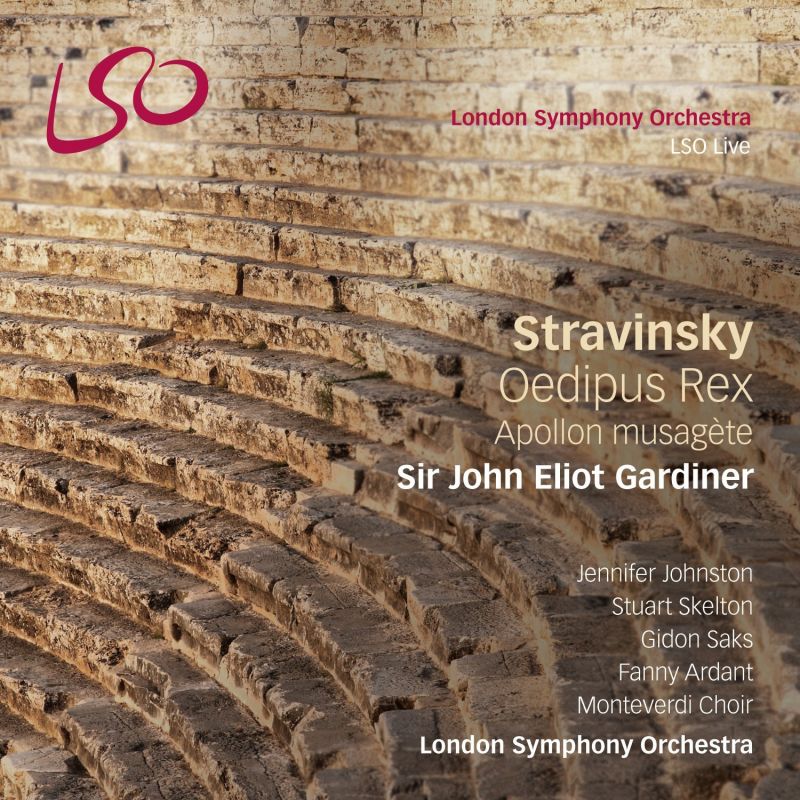STRAVINSKY Oedipus Rex. Apollon Musagète
View record and artist detailsRecord and Artist Details
Composer or Director: Igor Stravinsky
Genre:
Vocal
Label: LSO Live
Magazine Review Date: 07/2014
Media Format: Super Audio CD
Media Runtime: 79
Mastering:
DDD
Catalogue Number: LSO0751

Tracks:
| Composition | Artist Credit |
|---|---|
| Oedipus rex |
Igor Stravinsky, Composer
Fanny Ardant, Narrator Gidon Saks, Creon, Bass Igor Stravinsky, Composer Jennifer Johnston, Jocasta, Soprano John Eliot Gardiner, Conductor London Symphony Orchestra Monteverdi Choir, Gentlemen of Stuart Skelton, Oedipus, Tenor |
| Apollon musagète |
Igor Stravinsky, Composer
Igor Stravinsky, Composer John Eliot Gardiner, Conductor London Symphony Orchestra Monteverdi Choir, Gentlemen of |
Author: John Warrack
Apollon musagète, which might have been thought the epitome of Stravinsky’s classicism, is in fact almost the reverse. He never wrote a more romantic melody than for the duet between Apollo and Terpsichore, tenderly played by Gardiner, who also makes much of the dance rhythms that naturally suffuse the score, coming close to treating the odd pauses in the Terpsichore variation as a ballroom hesitation waltz. There is plenty of verve in the second tableau, with Apollo’s variation (a good violin solo and duet) and the succeeding Pas d’action. This is a beautiful performance.
Discover the world's largest classical music catalogue with Presto Music.

Gramophone Digital Club
- Digital Edition
- Digital Archive
- Reviews Database
- Full website access
From £8.75 / month
Subscribe
Gramophone Full Club
- Print Edition
- Digital Edition
- Digital Archive
- Reviews Database
- Full website access
From £11.00 / month
Subscribe
If you are a library, university or other organisation that would be interested in an institutional subscription to Gramophone please click here for further information.




